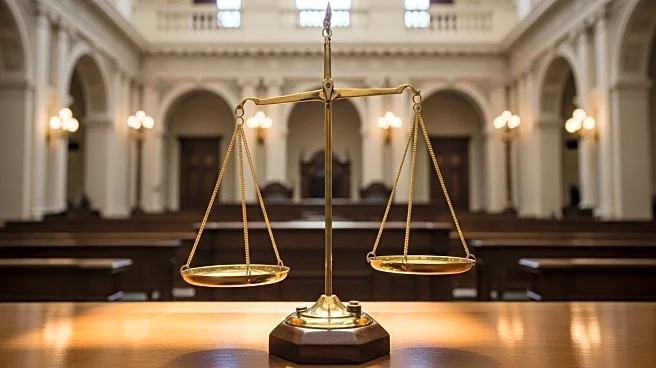What is the story about?
What's Happening?
The U.S. Supreme Court has commenced its 2025 term with a focus on legal ethics, highlighted by a case involving the Sixth Amendment right to counsel. The case, Villarreal v. Texas, questions whether a trial court violates this right by prohibiting discussions between a defendant and their lawyer during an overnight recess. Legal ethics scholars have filed an amicus brief arguing that such bans jeopardize core professional responsibilities and undermine attorney-client privilege. Additionally, the Michigan Supreme Court has revised its judicial conduct rule to mandate judges perform duties without bias, changing 'should' to 'shall' in the rule's language.
Why It's Important?
The Supreme Court's attention to legal ethics underscores the ongoing debate about the balance between judicial conduct and constitutional rights. The outcome of Villarreal v. Texas could have significant implications for attorney-client interactions and the protection of legal rights during trials. The Michigan Supreme Court's rule change reflects a broader trend towards stricter enforcement of judicial impartiality, which could influence similar reforms in other states. These developments are crucial for maintaining public trust in the legal system and ensuring fair trial standards.
What's Next?
The Supreme Court's decision in Villarreal v. Texas will be closely watched, as it may set a precedent for how courts handle attorney-client communications during recesses. The Michigan Supreme Court's new rule will take effect on January 1, potentially prompting other states to reevaluate their judicial conduct standards. Legal professionals and scholars will likely continue to advocate for reforms that enhance ethical practices within the judiciary.
Beyond the Headlines
The focus on legal ethics highlights the evolving expectations of the legal profession in addressing public morality and social justice. As legal ethics become more scrutinized, there may be increased pressure on legal education to prepare future lawyers for these complexities. The intersection of legal ethics with broader societal issues, such as cancel culture and public backlash, could lead to significant shifts in how legal professionals approach their roles.















